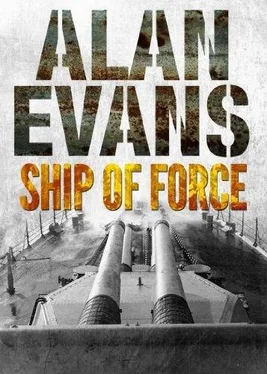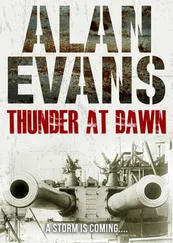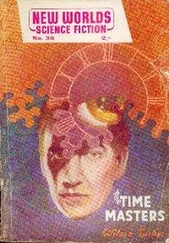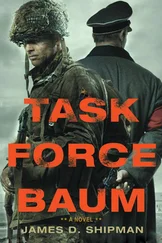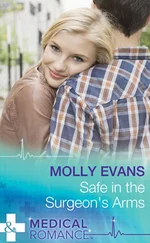“Wot ship, Cap’n?”
“Free cheers for the Nivy.”
He was jerked out of his abstraction. The cab had slowed to round a corner and a group of urchins, ragged and dirty and mostly bare-foot ran alongside. He grinned, lifted a hand in salute and they cheered. A tiny girl shrieked, “Touch your collar for luck!” But Smith was no bluejacket with a collar to touch and the cab was trotting on now, leaving them behind.
And his thoughts turned not to Eleanor Hurst but to Marshall Marmont and Sparrow . His mind was busy with them when the cab pulled up at the door of the little house and he jumped down and threw at the cabbie: “Wait!” He dug into his pocket for the key and opened the door. The house was still, the sitting-room and the kitchen beyond were empty. “Eleanor?” He called her name again as he ran up the stairs, tapped at the bedroom door and went in. She was where he had left her in the bed, curled small, her face turned towards the window.
He said tentatively, “Eleanor? Don’t you feel well?”
“I’m not ill.” The answer was flat and she did not look at him.
He went to sit on the edge of the bed and said awkwardly, “I’m sorry, but I have to go.”
“All right.” Her voice came muffled.
He was lost for words, knew vaguely what he wanted to say but not how to say it. He was sorry and grateful, fond of her. He picked up the leather case that held his razor, lather-brush and tooth-brush and glanced around but there wasn’t anything else. He looked at her and then down at the case and finally he said inadequately, “Thank you.” He tried again: “I won’t be far away and if I get leave I could come and —”
She said harshly, “No! You’re off to the bloody war and you won’t come back to me. Go away!”
There was a hammering at the door and the hoarse voice of the cabman called, “How long are you goin’ to be, guv? ‘Cos I’m booked for one o’ my regulars an’ I can’t ’ang abaht!”
“Coming!” Smith shouted it. He turned back to the girl but she neither moved nor spoke. He stared at her helplessly. She had known what he was and that he would have to leave her. What had changed her? Only a few short hours ago…He burst out, “What the hell’s the matter? What did you expect?”
She twisted in the bed and flung at him, “This! This is what I expected and I asked for it! Now get out!”
He shook his head, bewildered, and as the cabman banged again on the door said unhappily, “Well. Goodbye.”
He walked down the stairs, jammed the leather case into his valise and opened the door to the cabman. “Take the bag out, will you?” The cabman heaved the valise into the cab. Smith put the key on the hall-stand, picked up his cap and closed the door behind him.
He said, “Victoria, please,” and climbed into the cab. It lurched away as the horse broke into a weary trot. Smith ran his hand through his hair and jammed on his cap. He was sorry, and angry because he did not see what he had to be sorry for. It was a hell of a way to part. He glanced at his watch. There was a train he could just catch. If he went back to her now he would miss it. But for Eleanor, though, he would have spent the last two days wandering the city and making polite conversation with strangers because he would not impose on Sanders or the one or two like him. And there was more to it than that.
He shouted up at the driver, “Stop!”
The cabbie hauled on the reins, grumbling.
Smith looked out of the rear window and saw another cab leaving the house. A man stood at the door of the house, an Army officer, cap in hand. The door was opened and he stepped inside and out of sight.
Smith faced his front, staring blankly ahead. He could not believe it. She would not acquire another man, another lover so soon. It had to be coincidence…though she had known when Smith would leave because he had told her.
The cabbie complained, “Look ‘ere, guv’nor —”
“All right! Get on!” The violence in the tone jerked the cabbie back in his seat. Smith glared ahead. That was that. Now there were only the ships, his command. But he would not forget her. Besides, he had recognised the officer, the tall young man in the red-tabbed uniform of a Lieutenant-Colonel on the Staff: Hacker…
It was only much later, staring out of the window of a train crowded with troops that he thought he was no nearer guessing the meaning of Schwertträger . And now a new dimension had been added: Spring tide. If the tide was significant then a time was set. But what time? And what was the threat? It was as if Eleanor Hurst’s casual words had set a clock ticking. And there was nothing he could do about it.
* * *
She had run down the stairs with her robe clutched about her carelessly, thinking the knock at the door meant Smith had returned. Then she said, “You’d better come in.”
Hacker stood by the table and said, “I have to go back to Dunkerque. What is your answer?”
She wondered if Smith had known she was afraid and did not believe so. He had taken what he wanted and what he needed and because she had not summoned up a brave smile to speed him on his way he had gone away miserably certain he had hurt her. She had learned a lot about him, knew that he wanted to be gentle. Well, she just wasn’t feeling very brave, he had been leaving her alone and at the end her nerve cracked and she lashed out at him.
But she wouldn’t crack again. She pulled the robe closer about her, looked up at the tall soldier and nodded. “Yes.”
* * *
For Smith it was back to sea and the grind of patrols. Marshall Marmont he used as a floating base as she swung to her anchor in Dunkerque Roads. Sparrow always had a sprinkling of men from the monitor aboard her, giving some of Sparrow ’s crew a comparative rest aboard Marshall Marmont . And that was just as well because Sparrow did more patrols than any other ship in Trist’s command. And some of the monitor’s men got firsthand experience of patrol work and even tasted the excitement of a U-boat stalk, though it was unsuccessful. But as McGraw told them philosophically as they stood down after the action, weary and deflated, “Still, the bastard didn’t get us, either.” The torpedo had missed Sparrow by scant feet.
Always now when she sailed she did so with Galt playing his mouth-organ. ‘Oh, I do like to be beside the sea-side!’ Again that was at Smith’s order but Dunbar grinned at it. That was a rare sight. Dunbar was a more patient man these days but taciturn, unsmiling. He never mentioned his wife and child in all the long hours he shared the bridge with Smith. And Smith was aboard Sparrow on every patrol, with Buckley as a lookout or taking a trick at the wheel.
There was a bombardment when a dozen of Sparrow ’s crew worked in Marshall Marmont’s turret and tasted the swallowing claustrophobia of entombment in an anchored ship under fire from big guns. The monitor made excellent shooting.
Finally Sparrow and Marshall Marmont formed part of the escort of a ‘beef’ convoy. Those convoys from neutral Holland to the Thames and the East coast carried beef but also butter, cheese and other foods. There was a theory it was purchased to stop the Germans buying it, an extension of the blockade, but Britain needed that food. The monitor was there only because the ships of the convoy were so old and slow that she was able to keep up. They joked that it was the slowest convoy of the war, or any other war, but when one ancient tramp was torpedoed it was Marshall Marmont who took the crippled ship in tow and Sparrow who shepherded them home.
Читать дальше
